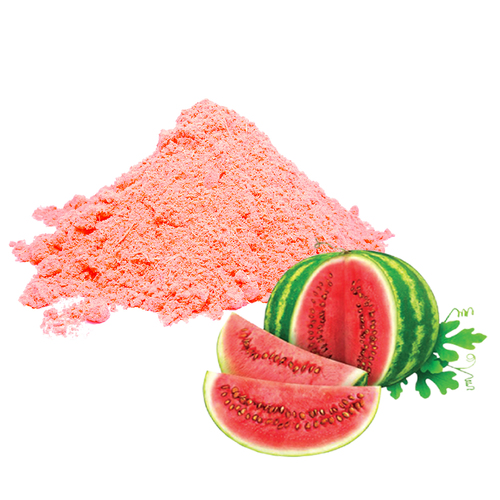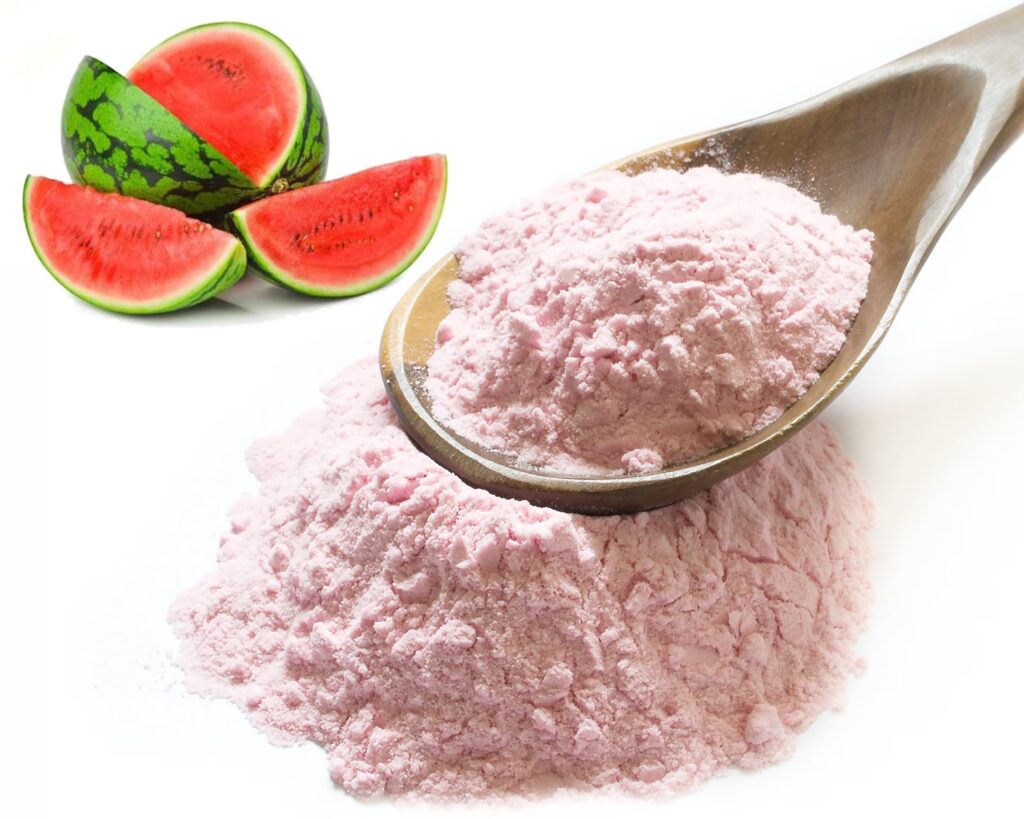Although watermelon contains 92 percent water, it has many health benefits, and every bite of it contains vitamins A and C, antioxidants, and amino acids. It is said that the more mature the watermelon is, the higher the level of lycopene and beta-carotene in it.
According to a study published in the journal Chromatography, the white part of watermelon rind contains more citrulline and amino acid, which improves blood circulation in the heart, and thus heart health and safety.
In addition, there are benefits to watermelon seeds, which contain magnesium, protein, and fats. Health and vitamin B. Here are the full health benefits of watermelon:
1. Prevents cancer:
Watermelon contains lycopene, which is linked to the prevention of cancer in the digestive system. Lycopene reduces the risk of cancer by reducing insulin-like growth factor (IGF), which is a protein that helps cell division.
High levels of this protein are said to increase the chances of getting cancer.
2. Improving eye health:
Lycopene helps protect the eye from inflammation and oxidative damage. It acts as an anti-inflammatory and antioxidant compound, which may help prevent age-related macular degeneration.
3. Promotes heart health:
It is believed that the high content of lycopene in watermelon reduces the risk of heart disease. It reduces bad cholesterol and blood pressure.
According to a study published in the American Journal of Hypertension, watermelon helps reduce high blood pressure and lowers it in adults who suffer from obesity.
Watermelon also contains citrulline, an amino acid that increases nitric oxide levels in the body, which also helps lower blood pressure.
4. Reduces muscle pain:
Watermelon reduces muscle pain due to its high citrulline content. In addition, drinking watermelon juice is said to improve blood circulation in athletes.
5. Prevents asthma:
Watermelon is an excellent source of vitamin C, which reduces the risk of developing asthma.
Studies have shown that vitamin C has anti-inflammatory and antioxidant properties. Hence, a person with asthma has low levels of vitamin C in the body, which is why he suffers from Symptoms of asthma.
6. Improves digestion:
Watermelon contains a good amount of fiber, which promotes a healthy digestive system and keeps bowel movements regular.
7. Reduces inflammation:
The high lycopene and vitamin C content in watermelon helps reduce inflammation and oxidative damage.
A medical study has shown that eating fruits rich in lycopene and vitamin C reduces levels of inflammation in the body.
8. Moisturizes the body:
Since watermelon has a high water content, it keeps the body hydrated, especially during the hot summer months.
9. Promotes healthy skin and hair:
The presence of vitamin C and vitamin A in watermelon is beneficial for skin and hair health, as vitamin C is necessary for making collagen, a protein that keeps the skin soft and hair strong, while vitamin A helps maintain healthy skin by repairing skin cells.
10. Treats erectile dysfunction:
Watermelon is a good source of citrulline, which is converted into another amino acid called arginine, which in turn is converted into nitric oxide, an element that helps dilate blood vessels, increases blood flow, and improves erection in men.
Potential health risks:
Excessive consumption of watermelon can cause one problem related to digestion, which may include diarrhea or other stomach problems, and consuming more than 30 milligrams of lycopene can cause indigestion, bloating, and nausea.





